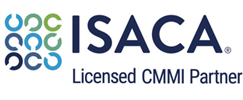GLP Certification or Good Laboratory Practice Certification is a quality assurance standard that ensures reliability, consistency and integrity of non-clinical laboratory testing. This certification establishes a specialized framework for conducting, recording and reporting research, particularly in the pharmaceutical, agrochemical and biotechnology industries. This standard is controlled by global norms such as OECD, also known as Organization for Economic Co-operation and Development and some other governing regulatory authorities. GLP assures the reliability of laboratory data and delivers a straightforward account of all the procedures being conducted in a lab, making it possible for one to trace and confirm every process step. This certification is adopted by companies that carry out non-clinical safety tests because it makes their data valid and acceptable to regulatory bodies worldwide. By following GLP guidelines, laboratories can generate high-quality reliable data for safety studies. Along with this, GLP Certification also helps in building trusts with stakeholder, suppliers, partners and consumers. GLP principles also helps in the identification of potential risks and hazards, helping laboratories to take corrective actions and ensure a safe working environment, protecting human health and environment.
GLP Certification is required for businesses that plan to comply with legal regulations in order to give their research validity and credibility. Businesses that failed to comply with GLP would result in research rejection, loss of money and legal actions. GLP demands strict integration to protocols, such as documentation, calibration of equipment, training personnel and quality control procedures. GLP Certification benefit companies by improving their credibility, streamlining regulatory approvals and facilitating global trade. This certification process involves detailed inspection of documents by regulatory agencies like FDA and EMA, to ensure the proper compliance of GLP guidelines integrated by company. Laboratories has to ensure good documentation, standard operating procedures (SOPs) and regular audits to prove they are certified. Non-compliance of GLP standard can results in penalties, fines and loss of certification, that can harm organizations public image. GLP Certification ensure scientific credibility and public safety by verifying that products have undergone right testing, under strict standards. This makes GLP a vital component of regulatory science, promoting trust in the safety and efficacy of products. By prioritizing GLP compliance, institutions can demonstrate their commitment to quality and safety, supporting public health and confidence.




